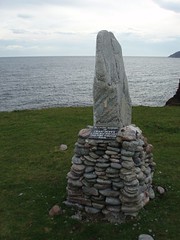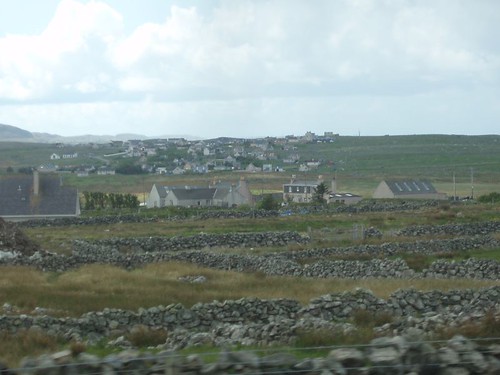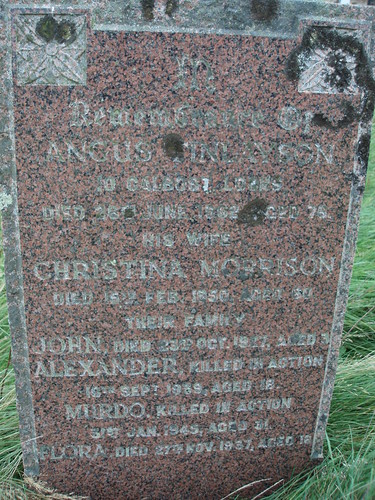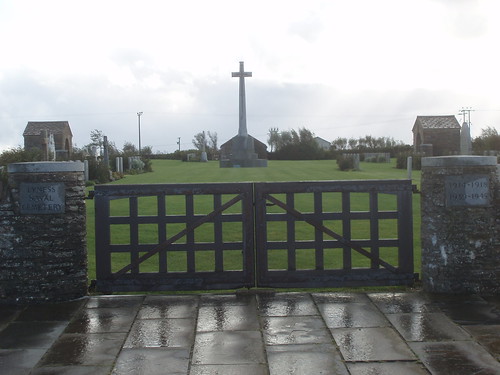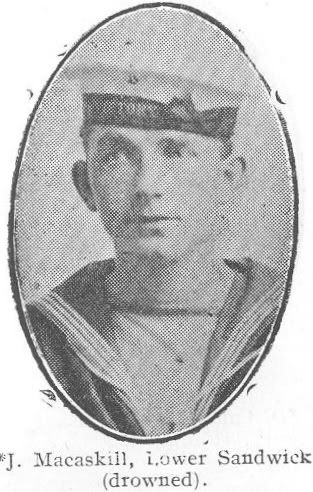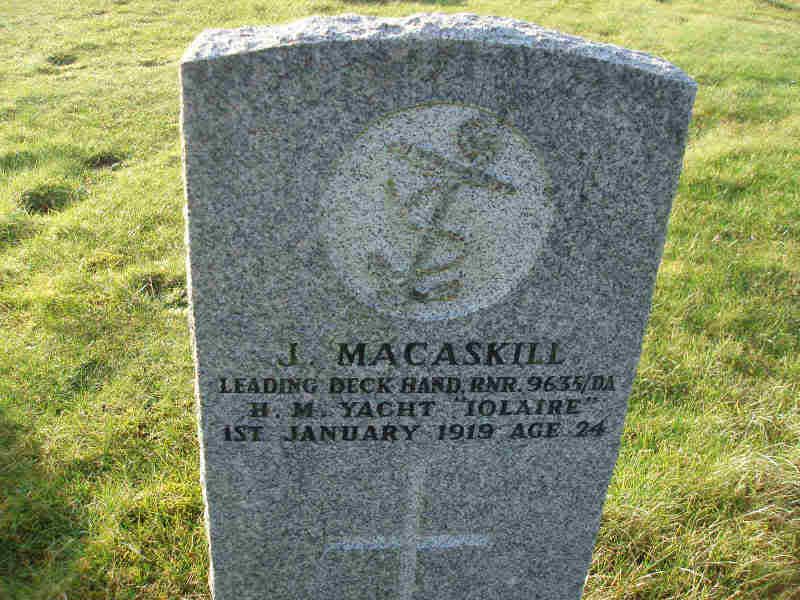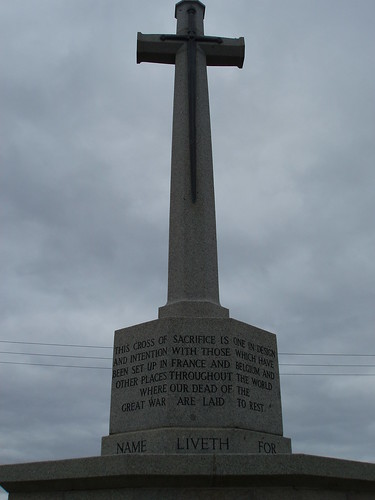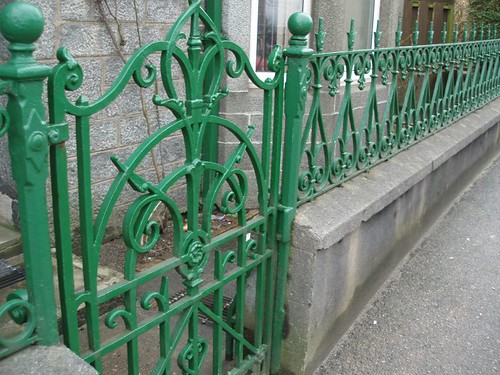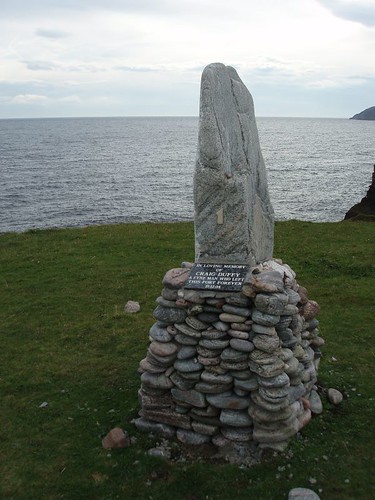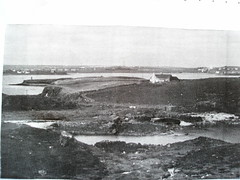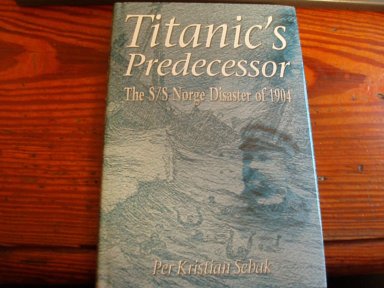On 8 May 1883, Lord Napier visited the Isle of Skye and other areas in the Highlands and Islands. He had been charged by Queen Victoria to investigate the grievances of crofters and cottars against the prevailing system of land ownership, security of tenure (or lack thereof) and living conditions. I have a transcript of the report, and it makes for deeply depressing reading. However, if anyone wants to understand the recent history of the north of Scotland, this is compulsory reading.
I copy the first 21 paragraphs, which gives a flavour of society in those days.
For reference: the man interviewed, Angus Stewart, lives in an area called the Braes, 8 miles southeast of Skye's main town, Portree. When the landowner found that the local cottars were not paying the rent, he sent in the constabulary. The police were met with a fully fledged riot, and retreated bloodied to Portree. A Royal Navy ship was sent to the area, by which time the uprising had come to the attention of the authorities in London.
1. The Chairman.—Would you have the goodness to state what is your occupation ?—A crofter.
2. Have you also been engaged in fishing ?—Yes.
3. Were you born here, at the Braes?—Born at the Braes.
4. Have you lived here all your life?—Not all my life. I have been away, but not very far off.
5. From time to time?—From time to time.
6. But you are thoroughly acquainted with the feelings and interests of the people here?—Yes.
7. Have you been freely elected by the people to be their delegate!— Yes.
8. Now, will you have the goodness to state to me what are the hardships or grievances of which the people complain who have elected you ?— Yes; but it is in Gaelic that I prefer to speak.
9. You desire to be examined in Gaelic?—Yes. [From this point the examination of the witness and of subsequent witnesses in Skye was conducted through Mr Dugald McLachlan, sheriff-clerk depute, as interpreter.]
10. Then you wit! have the goodness to state what are the hardships and grievances, if any, of which the people whom you represent at this place complain?—I would wish that I should have an opportunity of saying a few words before I tell that, and that is that I should have the assurance that I will not be evicted from my holding by the landlord or factor, as I have seen done already. I would not have a fire in my house at Whitsunday I want the assurance that I will not be evicted, for I cannot bear evidence to the distress of my people without bearing evidence to the oppression and high-handedness of the landlord and his factor.
11. Have you anything more to add to your preparatory statement?— No.
12. It is impossible for the Commission to give you any absolute security of the kind which you desire. The Commission cannot interfere between you and your landlord, or between you and the law, but we trust that no act of oppression or severity would ever be exercised towards you or any one else by the landlord in consequence of your courage and goodness in telling the absolute truth.
Mr ALEXANDER MACDONALD, Factor for Lord Macdonald—examined.
13. The Chairman.—You are at liberty to speak if you desire to make any observations?—In the first place, I may say that I am surprised at this man's statement, because he is not one of our crofters at all. He is a crofter's son; he is not a crofter. That is the first thing. In the next place, I do not think that he has any reason whatever, or that any person has any reason whatever, if he tells the truth, and nothing but the truth, to fear anything. In fact, we consider it rather insulting to us to insinuate anything of the sort. We despise to do anything of the sort. We expect and trust that the men will tell the truth and nothing but the truth, and the whole truth.
14. There is something rather ambiguous in the statement which you have made. Am I to understand that you publicly state that no proceeding will be taken against any tenant or inhabitant of this place in consequence of what they state before the Commission on this occasion?—I believe not.
15. You say you believe not, but do you engage that no proceedings will be taken?—That is all I can state: on my own property certainly there will not be, and, I believe, on no property. In fact, such an idea never entered our heads; but we expect the people will tell the truth, the whole truth, and nothing but the truth.
16. Mr Cameron.—Would you engage on behalf of the proprietors for whom you act; for all properties with which you are connected?—Most certainly; but this I would say, if we hear any man making a grossly false statement against us, which we can prove to be false, I do not think that in human nature it would be found we should like to continue that man as our tenant. If there is any statement which is made by a man thinking and believing it to be true, even though we ourselves differ from it, we would never dream of using any power that we have, but if the man tells a parcel of unfounded lies—which I do not believe any man here or elsewhere in Skye will do until I hear it—that is a different matter altogether. So far as we are concerned the people have full liberty to tell everything they have to say, without any fear.
17. The Chairman.—If you are able to do so I would rather that you availed yourself of this occasion to make a distinct declaration that whatever the people say no proceeding will ever be taken against them on that account,—that on this particular occasion whatever they may say, however mistaken you may think them, however erroneous or false, no proceeding will be attempted?—These are my own personal feelings, and certainly so far as the properties for which I am factor are concerned they will never know or hear anything about it—so far as I, as factor, am concerned.
18. Then I am authorised by you to assure this gentleman before me that nothing will ever be done to his prejudice on this occasion?—I expect that he will tell the truth, the whole truth, and nothing but the truth, and so far as I am concerned as factor, I will visit in no way anything upon him, and I believe Lord Macdonald will do nothing.
19. Mr Cameron.—You have heard what this witness has said, that except under certain conditions he refuses to give us evidence. We have been appointed by the Queen to investigate this subject thoroughly, and it is impossible that we can do so unless we get proper evidence from witnesses such as Mr Angus Stewart. Now, I am sure you would not Macdonald, wish that the evidence should fail to be recorded from any disinclination on your part to give the assurance which has been asked by the chairman — I give him the fullest assurance.
20. And I think all we wish was contained in the observation which I formerly made, namely, that so far as concerns the estates under your management nothing shall happen to any witness in consequence of any statement which he may make, whether you consider it truthful or not, before this Commission. If you give that assurance we may at once proceed ?—Certainly we expect the man to tell the truth.
21. The Chairman.—But let us come to a point on this matter. Will you state yes or no in reply to my question,—will you authorise me to state absolutely to this man that nothing will ever be done prejudicial to his interest or that of his family in consequence of anything he may say on this occasion ?—I believe I am quite at liberty to say so. I believe I am perfectly at liberty to say so, and from the first I could have said so.
